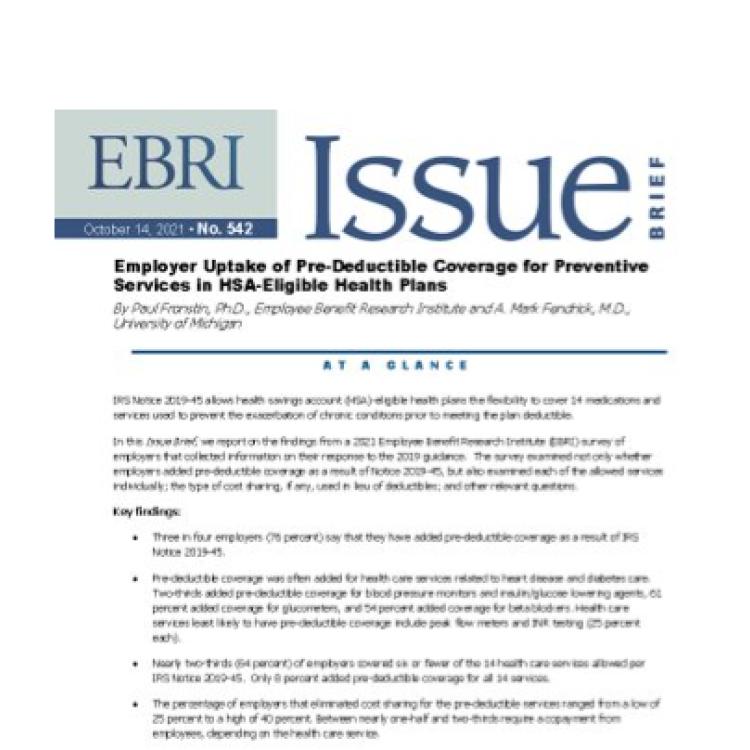Authors
Paul Fronstin, PhD, Employee Benefit Research Institute, and A. Mark Fendrick, MD, University of Michigan
Publication
Employee Benefit Research Institute Issue Brief
Fast Facts
Many large employers are expanding pre-deductible coverage for medications and health services used to prevent exacerbations of common chronic conditions and would like to further broaden this coverage, according to new NPC-funded research by the Employee Benefit Research Institute. Providing coverage before patients meet their deductible eliminates a financial barrier for patients by lowering their out-of-pocket costs and increases utilization of essential medicines, ultimately improving health outcomes.
High-deductible health plans (HDHPs) feature lower-than-usual monthly premiums and higher deductibles and are often combined with health savings accounts (HSAs), which allow beneficiaries to set aside tax-exempt money for medical expenses. These high deductible plans can be problematic for people with lower incomes or with chronic conditions who need regular care or medications. They can end up paying thousands of dollars in health costs at the start of the year to meet their deductible, leading some to avoid needed care.
In an effort to address this issue, the U.S. Department of Treasury issued Internal Revenue Service (IRS) Notice 2019-45 in July 2019 allowing HSA-eligible health plans the flexibility to cover 14 medications and services used to prevent exacerbations of chronic diseases prior to meeting the plan deductible. This study surveyed benefits decision-makers at large employers with HSA-HDHPs to determine whether they changed their health plans in response to IRS Notice 2019-45.
Key Findings
-
About 3 in 4 employers (76%) added pre-deductible coverage for HSA-eligible plans in response to the IRS Notice.
-
Depending on the medication or service, between 25% to 40% of employers not only provided pre-deductible coverage, but they also eliminated all patient cost sharing.
-
Most employers (81%) said they would offer pre-deductible coverage for additional drugs and health services if allowed by law.
This research shows that while there has been substantial uptake in offering pre-deductible coverage thanks to the IRS rule, employers would embrace the opportunity to add more preventive medications and health services for pre-deductible coverage. Expanding pre-deductible coverage further could benefit the health of millions of Americans suffering from chronic conditions as well as lower health care costs by reducing barriers to appropriate, high-value care.
Check out EBRI's Fast Facts about this Issue Brief.

